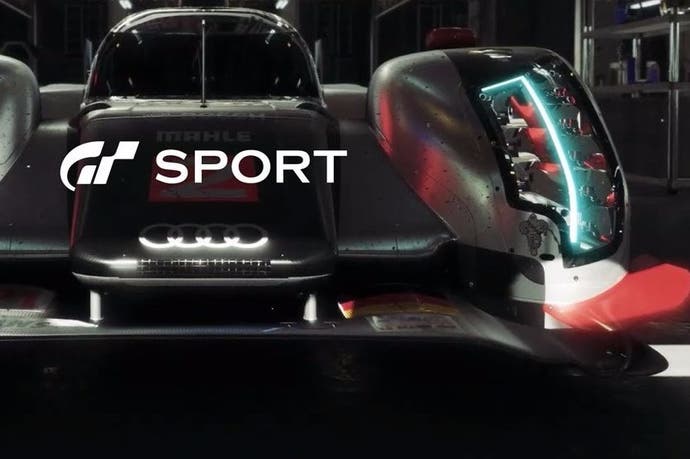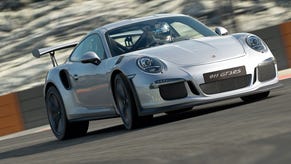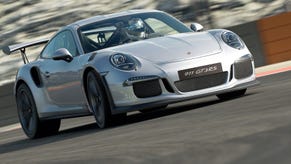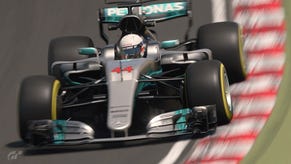The madness of Gran Turismo Sport
Yamauchi's plan to revive motorsport comes to life - but can it save his series from itself?
This coming weekend, Gran Turismo creator Kazunori Yamauchi will once again be taking to the Nürburgring in what's become an anomaly on the motor racing calendar in the modern era; a 24 hour race around one of the sport's most challenging tracks, where over 160 cars compete through the turns and trails carved through the Eifel mountains in an event that simply shouldn't be possible in the restrained, risk averse atmosphere of the 21st century.
You can accuse Yamauchi and the team he looks over at Polyphony of many things. Of being out of touch with the driving game as it is today. Of a work-rate that will have seen Turn 10 deliver two fully-featured Forza Motorsport games on the Xbox One by the time Gran Turismo Sport comes out on PlayStation 4 at the end of this year (and despite a softening of the message around the game and a generosity of content within, it's still highly likely this remains a prelude to a Gran Turismo 7 proper).
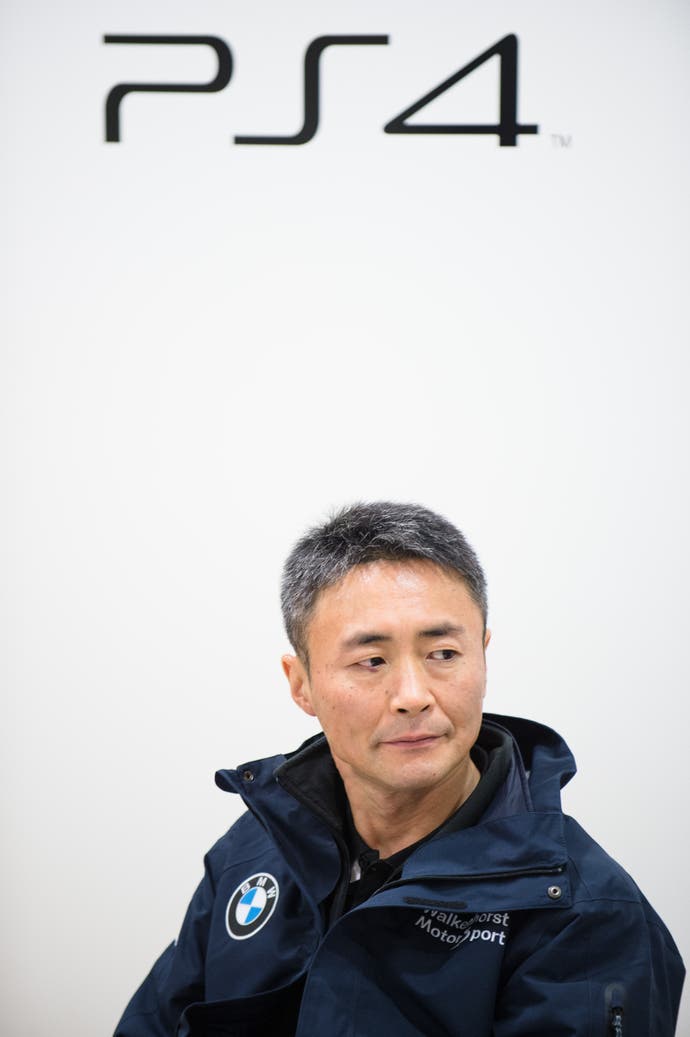
You can't, however, accuse Yamauchi of being out of touch with motorsport, or of feigning his passion. The launch event for Gran Turismo Sport, taking place in the generous space of Stratford's Copper Box Arena, is decorated with 19 years of Gran Turismo's history, time which has seen it seep its way into the sport. There are real-life racing drivers who got their break through Gran Turismo's Academy programme mingling with the crowd, sitting between life-size models of impossibly beautiful Vision cars, grand fictions created in partnership between Polyphony and major automotive manufacturers.
Wearing the team jacket of Walkenhorst Motorsport, the outfit that's preparing his BMW M6 GT3 for this weekend's race, Yamauchi walks with a sprightly step across the show floor, at one point breaking into an impromptu dance. He's a delighted child amidst all of his brilliant toys.
Yamauchi's infatuation is genuine, and he's put himself in a position to indulge it. The success of Gran Turismo has allowed that, but so too does his seat on the board of Sony Interactive Entertainment. Yamauchi, it seems, answers to no-one but himself, resulting in his series taking its own curious path. What was once the poster child for PlayStation has mutated in recent years to become a bizarre passion project
On the surface, Gran Turismo Sport is a gentle debut for the series on PlayStation 4, its 137 cars and 19 tracks falling short of the exhaustiveness expected of a mainline entry in the series, even if it shoots well past what's been included in previous Prologue games. It's positioned, in part, as a shift towards structured online competitive play - an iRacing for console, if you will - but in Yamauchi's eyes it's something far more profound than that.
Back in 2014, when Gran Turismo's partnership with the FIA, motorsport's governing body, was announced, Yamauchi's ambitions were no less than reviving the sport itself, arresting its declining popularity and broadening its appeal to an all-new, younger audience. Gran Turismo Sport is the first step towards his new goal, a tie-in with the FIA that goes to astounding lengths. Get to a certain stage within the game, and you're granted your own FIA racing licence. It's a prospect so out there I'm still not entirely sure how it'll work.
"The FIA Gran Turismo digital licence is something we've discussed with automobile clubs and the FIA for the past three years," explains Yamauchi at the event. "A little bit at a time, things have been moving forward, and the world motorsports council a few months ago there was a vote to allow the announcement of this project. It's not something we're rushing into. What the programme actually entails - the licence is only granted once you go through a lot of different subjects that cover your manner on the track, safety issues - and the behaviour of the player is judged on aspects that are required in real life racing. Once you're eligible for that licence, that information will be shared from Gran Turismo to the relevant automobile clubs. From there on, it's up to those clubs to decide how they're going to handle this."
The MSA, the UK's own governing body of motorsport, is onboard, as are 21 other countries at present, and while the practicalities are yet to be clear - and there will always remain the costly issue of actually getting yourself a race car - the prospect's an exciting one. It doesn't stop there, though. Sport will play host to regular events, culminating in regional, national and international finals that are to be held at weekends, the overall winner of the season being crowned alongside the champions of F1, WRC, WEC and more at the FIA's annual prize giving. The grand final itself, meanwhile, will be adjudicated by none other than Charlie Whiting, F1's official race director since 1997. The eccentricity and authenticity of Sport knows no bounds.
Whiting's appointment, as deliciously ludicrous as it is, also speaks to Gran Turismo Sport's attempt to transpose some of the ethics and etiquette of real-life racing to an online environment. Other games have been there before, of course - iRacing remains the gold standard with its safety rating that encourages clean driving, so it's no surprise Gran Turismo Sport's own system is somewhat familiar, even if it's delivering its own unique twist.
"For the daily online races, there's going to be a system that's judging the players," says Yamauchi. "A system can't always make the judgments that a human being can. So say you had a crash at one corner - who was at fault? If it was a human being, you could make the judgement. When it's a computer system, no matter how much physics data you have, it's hard to judge. In that case, you really have to make it so both are at fault for the incident. What that entails is a player's sportsmanship rating will drop. Both sides will try to avoid incidents like that."
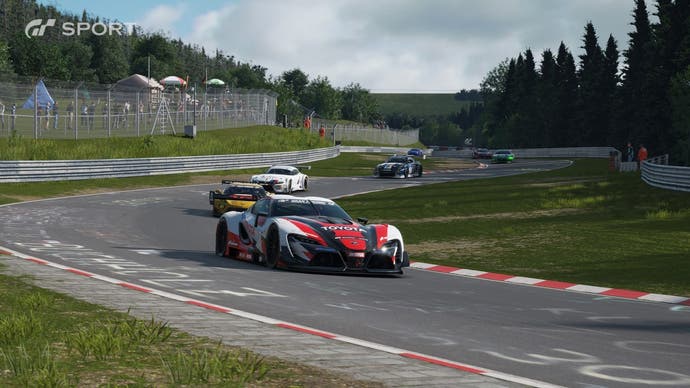
The result, from what we've seen so far, is racing that's hard yet fair, and that carries an air of authenticity. The live races carried out as part of the reveal event came complete with all the trappings of modern racing - pace cars and caution periods both played a part - all presented with impeccable flair, the stream leaning on instant replay technology that snapped to notable events so quickly we're sure there's a human director's hand at play, while on-screen graphics tell the story of the race concisely. Importantly, it's all an awful lot of fun to watch.
"The weekend finals will be broadcast around the world - it's like a TV programme," Yamauchi says. "The thing about a sport, unless it's fun to spectate, it doesn't work as a sport."
On console, far removed from the hard-edged action of iRacing, there's room for a serious competitive racer, and there's much about Gran Turismo Sport to suggest it could be that game. Its FIA tie-in feels like more than just lip service, too - too many racing games overlook the fundamentals of motorsport and get caught in their own muddle, but in looking to the real thing for inspiration Polyphony has potentially chanced upon something great. It's no wonder that when Yamauchi says at the outset of his presentation this is the most innovative Gran Turismo since the series' 1997 debut he does so with a straight face.
For the dedicated, and for those in thrall to motor racing, Gran Turismo Sport's shaping up to be quite the proposition. For the rest? There's not so much, and Sport's particular pursuit looks to come at the expense of its broader appeal. Time was you could rely on Gran Turismo to be a centrepiece for PlayStation, a technical showcase that would sell you on the power of its host hardware. Even taking into account the seven months left of development before the November release of Gran Turismo Sport, it's fair to say that's no longer the case.
The bubble in which Polyphony Digital operates only appears to have hardened in recent years, and by most modern standards Gran Turismo Sport falls short. There's not the splendour and polish of Turn 10's Forza Motorsport 6, the finesse and thoughtfulness found in Kunos Simulazioni's Assetto Corsa or the bark of Sector 3's Race Room Experience. It's not an ugly game - far from it - though it's not quite the generational leap you might have hoped for from a first-party developer of Polyphony's heritage and calibre.
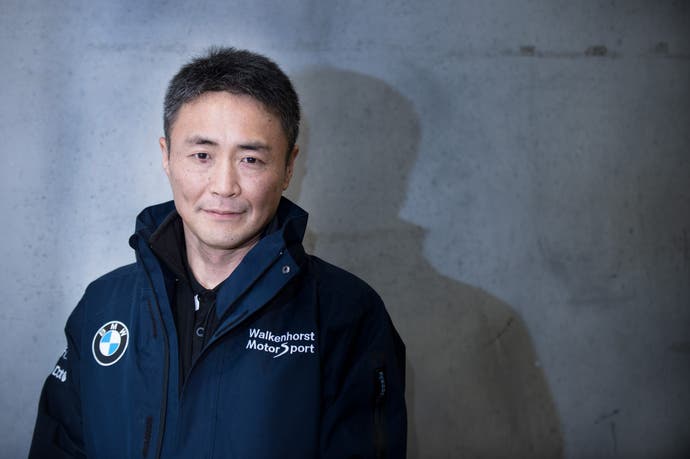
The visuals lack polish, and are given to some noticeable stutters when the current cap of 20 cars are all jostling on track, and the sound, while an improvement upon what's gone before, still falls flat when compared to its peers. There's no bite that accompanies each gearshift, no mechanical wheeze of drivetrain underpinning it all, the hollow exhaust note and piercing tire squeal that accompanies most cars giving Gran Turismo Sport a sterile feel.
Still, at least the cars feel more alive, each one displaying a level of personality that's unmatched on console (at least, that is, until Assetto Corsa arrives later this year). Across a couple of hour's play it's hard to pinpoint where Sport improves upon its predecessor, and it doesn't feel like the marked improvement that took place between Gran Turismo 5 and 6 in which aero and suspension all came more noticeably into play. Yamauchi says Sport is still a work in progress in that regard, but that it's all born from a central philosophy.
"What we aim for, in developing the physics engine, is the driver has a feel for the car. Real does not mean difficult, because anyone can drive cars. That's a misunderstanding that's become standard around the world - that real is hard. That's a misconception that we aim to right. In order to achieve that, there's a lot of minute details that have to be worked on. The evolution, it is taking place - and even in the version today, it's not 100 per cent to where we want to take it. Hopefully you can already feel what we're working towards."
The old magic is certainly still there. For all our concerns, there's something thrilling about taking a stock Golf GTI around the new Tokyo street circuit and hooning it to within an inch of its life, pushing its front end to extremes to break traction and then enjoying the flail of arms required to bring it all back into control. Gran Turismo's new focus might see it move away from the old pleasure of doing extraordinary things to ordinary cars, but that side of the series is still there if you want it.
There are better driving games out there - ones that look prettier, that sound better and that offer more by way of action. Gran Turismo is no longer the definitive driving simulator, and nor in this Sport incarnation is it the expansive automotive almanac of old. In its advanced years it's become something of an anomaly, an often maddening folly that shouldn't really be possible in this day and age. It might be as frustrating as it is fascinating, but perhaps we should be grateful such lunacy still exists.
